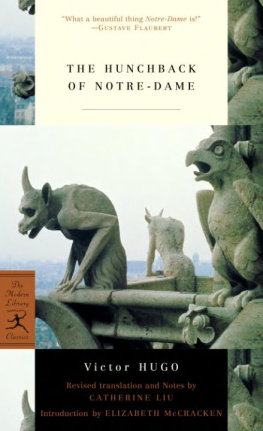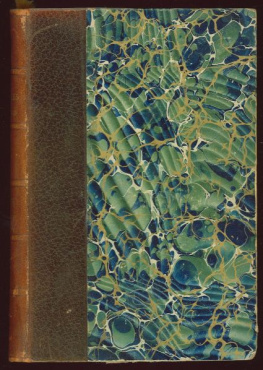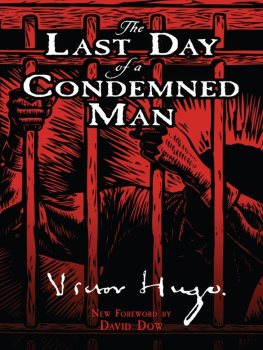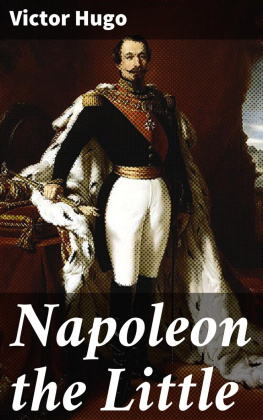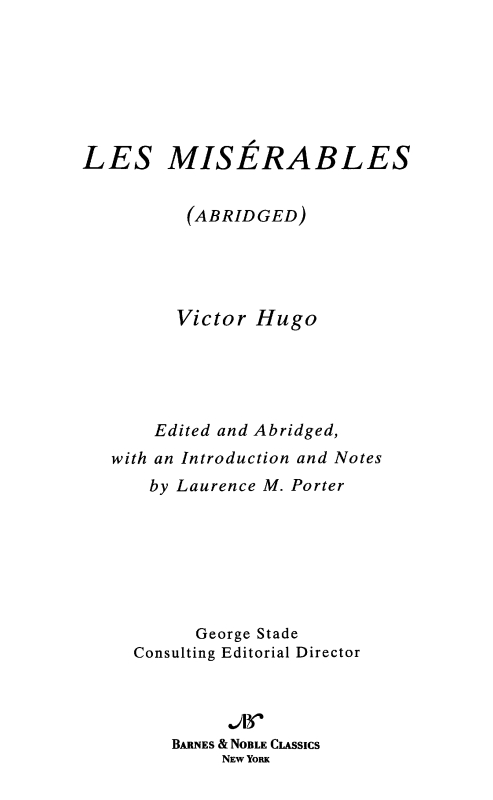
Table of Contents
FROM THE PAGES OFLES MISRABLES
What is said about men often has as much influence upon their lives, and especially upon their destinies, as what they do. (page 11)
Great grief is a divine and terrible radiance which transfigures the wretched. (page 122)
In the winter, it is so cold that you thresh your arms to warm them; but the bosses wont allow that; they say it is a waste of time. It is tough work to handle iron when there is ice on the pavements. It wears a man out quick. You get old when you are young at this trade. A man is used up by forty. I was fifty-three. (page 175)
No one ever keeps a secret so well as a child. (page 329)
The jostlings of young minds against each other have this wonderful attribute, that one can never foresee the spark, nor predict the flash. What may spring up in a moment? Nobody knows. (page 379)
All the problems which the socialists propounded, aside from the cos mogonic visions, dreams, and mysticism, may be reduced to two principal problems. First problem: To produce wealth. Second problem: To distribute it. (page 505)
Social prosperity means, man happy, the citizen free, the nation great.
(page 505)
He did not even know at night what he had done in the morning, nor where he had breakfasted, nor who had spoken to him; he had songs in his ear which rendered him deaf to every other thought; he existed only during the hours in which he saw Cosette. Then, as he was in Heaven, it was quite natural that he should forget the earth. (page 581)
Marius felt Cosette living within him. To have Cosette, to possess Cosette, this to him was not separable from breathing. (page 590)
The book which the reader has now before his eyes is, from one end to the other, in its whole and in its details, whatever may be the intermissions, the exceptions, or the defaults, the march from evil to good, from injustice to justice, from the false to the true, from night to day, from appetite to conscience, from rottenness to life, from brutality to duty, from Hell to Heaven, from nothingness to God. Starting point: matter; goal: the soul. Hydra at the beginning, angel at the end. (page 698)
Without cartridges, without a sword, he had now in his hand only the barrel of his carbine, the stock of which he had broken over the heads of those who were entering. He had put the billiard table between the assailants and himself; he had retreated to the comer of the room, and there, with proud eye, haughty head, and that stump of a weapon in his grasp, he was still so formidable that a large space was left about him.
(page 703)
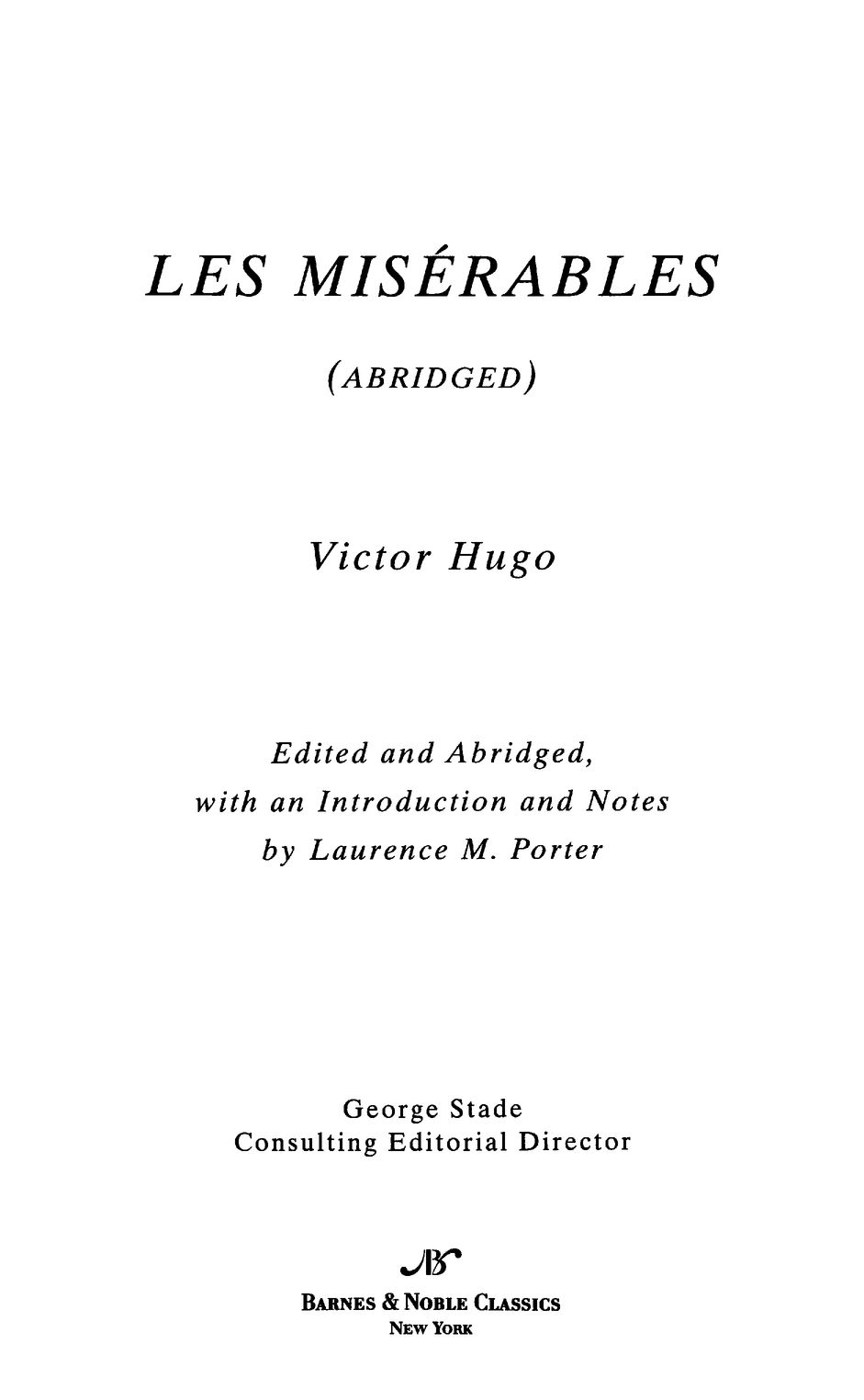
VICTOR HUGO
Novelist, poet, dramatist, essayist, idealist politician, and leader of the French Romantic movement from 1830 on, Victor-Marie Hugo was born the youngest of three sons in Besanon, France, on February 26,1802. Victors early childhood was turbulent: His father, Joseph-Lopold, traveled frequently as a general in Napoleon Bonapartes army, forcing the family to move throughout France, Italy, and Spain. Weary of this upheaval, Hugos wife, Sophie, separated from her husband and settled with her three sons in Paris. Victors brilliance declared itself early in the form of illustrations, plays, and nationally recognized verse. Against his mothers wishes, the passionate young man fell in love and secretly became engaged to his neighbor, Adle Foucher. Following the death of Sophie Hogo, and self-supporting thanks to a royal pension granted for his first book of odes, Hugo wed Adle in 1822.
In the 1820s and 30s, Hugo came into his own as a writer and figure-head of the new Romanticism, a movement that sought to liberate literature from its stultifying classical influences. His preface to the play Cromwell, in 1827, proclaimed a new aesthetics inspired by Shakespeare and Velzquez, based on the shock effects of juxtaposing the grotesque with the sublime (for example, the deformed hunchback inhabiting the magnificent cathedral of Notre-Dame). The play Hernani incited violent public disturbances among scandalized audiences in 1830. The next year, the great success of Notre Dame de Paris (The Hunchback of Notre Dame) confirmed Hugos primacy among the Romantics.
By 1830 the Hugos had four children. Exhausted from her pregnancies and Hugos insatiable sexual demands, Adle began to sleep alone, and soon fell in love with Hugos best friend, the critic Charles-Augustin Sainte-Beuve. They began an affair. The Hugos stayed together as friends, and in 1833 Hugo met the actress Juliette Drouet, who would remain his primary mistress until her death fifty years later.
Personal tragedy pursued Hugo relentlessly. His jealous brother Eugne went permanently insane at Victors wedding to Adle. Three of Victors children died before him. His favorite, Lopoldine, together with her unborn child and her devoted husband, died at nineteen in a boating accident on the Seine. The one survivor, Adle (named after her mother), would be institutionalized for more than thirty years.
Hugos early royalist sympathies shifted toward liberalism during the late 1820s under the influences of the fiery liberal priest Flicit de Lamennais; of his close friend Charles Nodier, an ardent opponent of capital punishment; and of his father, a general under Napoleon I. He first held political office in 1843, and as he became more engaged in Frances social troubles, he was elected to the Constitutional Assembly following the Revolution of 1848. A lifetime advocate of freedom and justice, often at his own peril, Hugo spearheaded the Romantic movement that linked artists to the political realm. After Napoleon IIIs coup dtat in 1851, Hugos open opposition created hostilities that ended in his flight abroad from the new government.
Hugos exile took him first to Belgium, and then to the Channel Islands of Jersey and Guernsey. Declining at least two offers of amnestywhich would have meant curtailing his opposition to the EmpireHugo remained abroad for nineteen years, until Napolons fall in 1870. Meanwhile, the seclusion of the islands enabled Hugo to write some of his most famous verse and his masterpiece, the novel Les Misrables. When he returned to Paris, the country hailed him as a hero. Hugo then weathered, within a brief period, the siege of Paris, the institutionalization of his daughter for insanity, and the death of his two sons. Despite this personal anguish, the aging author remained committed to political change. He became an internationally revered figure who helped to preserve and shape the Third Republic and democracy in France. Hugos death on May 22,1885, generated intense national mourning; more than two million people joined his funeral procession in Paris from the Arc de Triomphe to the Panthon where he was buried.
THE WORLD OF VICTOR HUGO ANDLES MISRABLES
1797 Hugos parents, Joseph-Lopold Hugo and Sophie Trbuchet, marry. They will have three sons: Abel (1798), Eugne (1800), and Victor-Marie (1802), who is born in Besanon on February 26. An officer in the army of Napoleon Bonaparte (Napolon I), Lopold must travel constantly during Victors youth.
1803Marital problems occur as Sophie cannot tolerate the transience
1812 of army life; finally, she settles in Paris with her three children. Both parents start extramarital affairs. The family travels to Corsica and Elba, where Lopold is stationed. He later commands the troops that will suppress freedom fighters in occupied Italy and Spain, sometimes nailing their severed heads above church doors.
Next page

